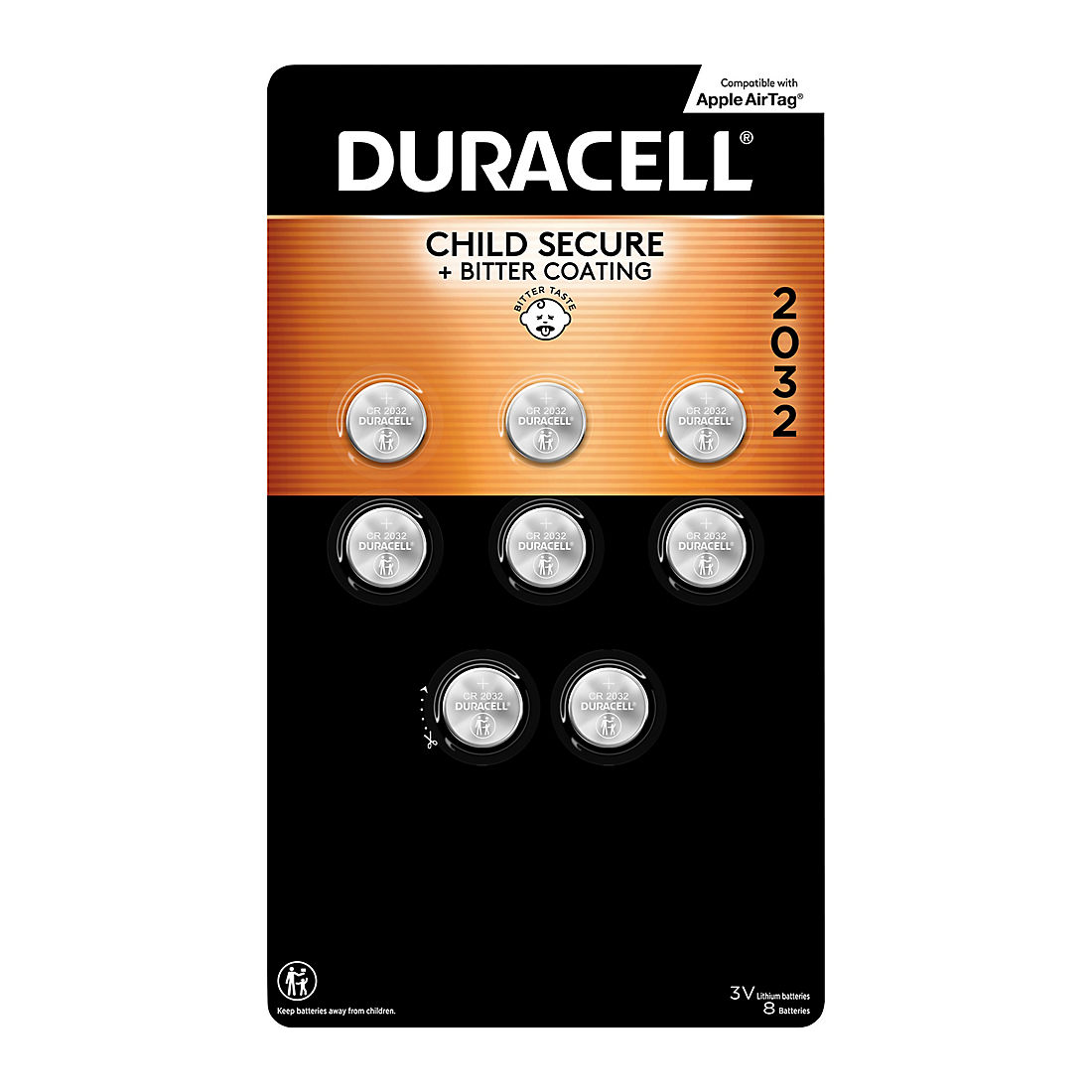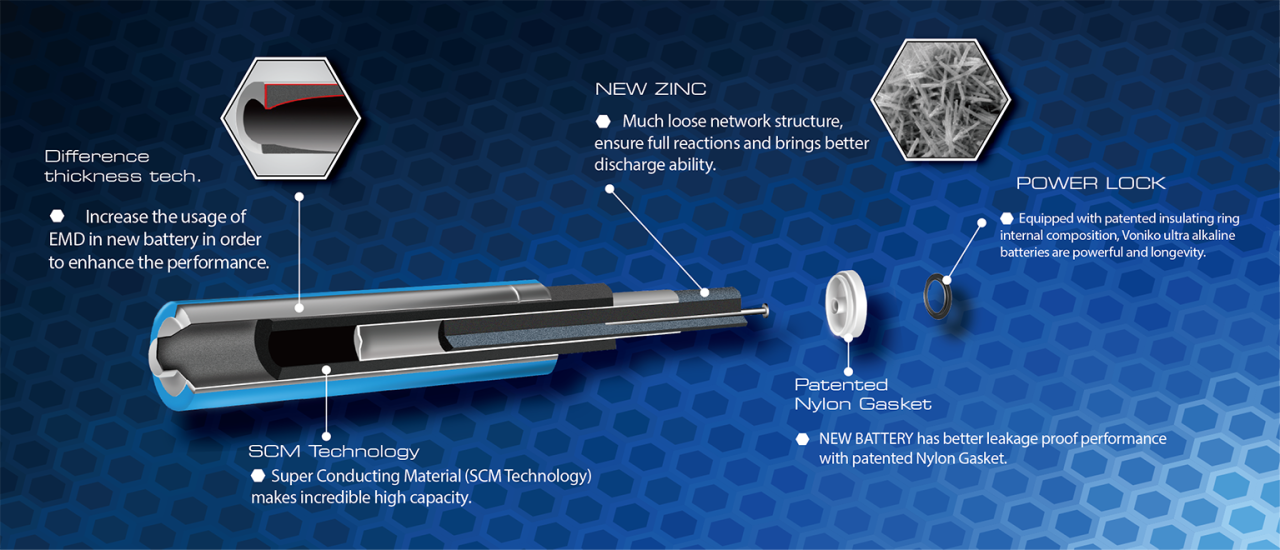Alkaline and lithium batteries offer different advantages and are suitable for specific purposes. Alkaline Versus Lithium Battery are more readily available and affordable, making them popular for everyday household use.
On the other hand, lithium batteries provide higher energy density, longer shelf life, and better performance in extreme temperatures, so they’re perfect for high-drain gadgets and uses that demand long-lasting power.
Both types have strengths and weaknesses, and choosing the correct battery depends on your requirements.

Credit: www.bjs.com
2. Chemistry And Composition
Understanding the chemistry and composition of batteries is crucial in determining their performance, lifespan, and suitability for different applications.
In this section, we’ll delve into alkaline and lithium batteries’ chemical makeup and structure, shedding light on their unique characteristics and functionalities.
2.1 Chemistry Of Alkaline Batteries
The chemistry behind alkaline batteries is based on a reaction between manganese dioxide (MnO2) and zinc (Zn) as the positive and negative electrodes.
This Chemical energy is transformed into electrical power in an electrochemical process.
2.2 Composition Of Alkaline Batteries
Alkaline batteries typically comprise a steel can as the outer casing, the negative electrode, surrounded by a separator. Inside the wall lies a cathode mixture containing manganese dioxide (MnO2) and graphite, acting as the positive electrode.
The alkaline electrolyte, usually a potassium hydroxide (KOH) solution, fills the space between the electrodes..
2.3 Chemistry Of Lithium Batteries
Unlike alkaline lithium batteries, they depend on a lithium compound as their electrochemically active material. Lithium batteries commonly use lithium cobalt dioxide (LiCoO2) as the positive electrode and carbon as the negative electrode.
This chemistry allows for significantly higher energy density compared to alkaline batteries.
2.4 Composition Of Lithium Batteries
Lithium batteries have a metal or plastic casing to house the components. Inside the case, a porous separator keeps the positive and negative electrodes apart to prevent short circuits.
The positive electrode, typically made of lithium cobalt dioxide (LiCoO2), and the negative electrode, commonly comprised of carbon, are placed on either side of the separator. The Lithium salt in an organic solution is the electrolyte, enabling the movement of lithium ions between the electrodes during the battery’s operation.

Credit: www.linkedin.com
3. Performance Comparison
When comparing alkaline and lithium batteries, understanding their performance differences is essential. This section will delve into various factors that set these two battery types apart.
Explore their energy density, voltage stability, discharge curve, shelf life, and temperature sensitivity.
3.1 Energy Density
Energy density refers to the amount of energy stored in a battery per unit of volume or weight. They are known for their superior energy density when comparing alkaline and lithium batteries.
They have a higher energy-to-weight ratio, making them more efficient and longer-lasting. In fact, lithium batteries offer about two times the high energy density of alkaline batteries, allowing them to power gadgets for extended periods. Duration.
3.2 Voltage Stability
Voltage stability is crucial, especially for devices that require a constant power supply. Lithium batteries maintain a steady voltage throughout their lifespan, providing a stable power output from start to finish.
On the other hand, alkaline batteries experience voltage drops as they discharge, leading to a decline in performance over time. Because of this feature, lithium batteries are recommended for high-drain electronics. Where consistent voltage is essential.
3.3 Discharge Curve
The discharge curve represents how a battery’s voltage changes as it discharges. Lithium batteries exhibit a relatively flat discharge curve, meaning they maintain a consistent voltage until they are almost entirely depleted.
In contrast, alkaline batteries have a steep discharge curve, resulting in a rapid decline in voltage as they discharge. Consequently, devices powered by lithium batteries tend to have a more stable performance throughout usage than those relying on alkaline batteries.
3.4 Shelf Life
Shelf life is when a battery can be stored and still retain its capacity to provide power. Lithium batteries have a substantially longer shelf life compared to alkaline batteries. Lithium batteries can keep up to 90% of their charge even after several years in storage.
Conversely, alkaline batteries gradually lose control over time, making them less reliable for long-term storage. Suppose you require batteries that can sit unused for extended periods while maintaining power. In that case, lithium batteries are the ideal choice.
3.5 Temperature Sensitivity
The term “temperature sensitivity” describes how a battery operates and is affected by temperature fluctuations. Lithium batteries excel in this aspect as they have a wide operating temperature range. They can function optimally in extreme hot or cold conditions, making them suitable for various environments.
In contrast, temperature variations affect alkaline batteries more readily and may cause them to experience reduced performance in extreme temperatures. Therefore, lithium batteries would be a more reliable option if your devices are frequently exposed to extreme temperatures.
4. Applications And Recommendations
When choosing the correct battery for your devices, it is essential to consider their applications and understand the recommendations for optimal performance. In this section, we will explore the ideal applications for alkaline and lithium batteries. We will also provide offers for choosing the correct battery and discuss the environmental impact considerations.
4.1 Ideal Applications For Alkaline Batteries
Alkaline batteries are versatile power sources suitable for a wide range of applications. Their long shelf life and reliable performance make them an ideal choice for various devices in our daily lives. Here are some of the perfect applications for alkaline batteries:
- Remote controls for televisions, DVD players, and other electronic appliances
- Flashlights and portable torches
- Clocks and alarm clocks
- Toys and gaming controllers
- Wireless computer peripherals, such as keyboards and mice
- Portable radios and CD players
- Smoke detectors and other home security devices
These devices typically require a reliable power source with a consistent voltage output, making alkaline batteries a practical choice for these applications.
4.2 Ideal Applications For Lithium Batteries
On the other hand, lithium batteries offer certain advantages that make them more suitable for specific applications.
These batteries deliver consistent performance under high-drain conditions and are more durable than alkaline batteries. Here are some of the ideal applications for lithium batteries:
- Digital cameras and camcorders
- GPS devices and fitness trackers
- Wireless headphones and earbuds
- Medical devices, such as glucose meters and hearing aids
- Electric toothbrushes
- Laptops and smartphones
These devices often require a higher power output and benefit from the extended lifespan of lithium batteries. It is important to note that some devices may require a certain kind of battery. Thus, it’s always best to check the manufacturer’s recommendations before deciding.
4.3 Recommendations For Choosing The Right Battery
When selecting alkaline and lithium batteries, a few factors must be considered to ensure optimal performance. Here are some recommendations for choosing the correct battery:
- Consider your device’s power requirements: Determine whether your device operates best with a steady voltage output or requires a higher power output.
- Check the manufacturer’s recommendations: Always refer to the device manufacturer’s guidelines to determine the recommended battery type.
- Weigh the cost and lifespan: Consider the overall cost of the batteries and the lifespan required for your device’s usage.
- Keep long-term use in mind: Lithium batteries might offer better value due to their longer lifespan if you plan on using the device for an extended period.
- Be environmentally conscious: Consider the environmental impact of the batteries and opt for rechargeable batteries whenever possible to reduce waste.
4.4 Environmental Impact Considerations
When discussing batteries, it is crucial to consider their environmental impact. Both alkaline and lithium batteries have ecological considerations:
| Battery Type | Environmental Impact |
|---|---|
| Alkaline | Contain heavy metals and corrosive materials, posing a risk to the environment. Proper disposal is necessary to prevent groundwater contamination. |
| Lithium | Requires specific recycling processes due to their chemical composition. However, lithium batteries have a longer lifespan, reducing consumption and waste in the long run. |
It is essential to utilize recycling programs for batteries and adhere to proper disposal methods to minimize environmental harm.
5. Future Developments
The race to develop more efficient and long-lasting batteries intensifies as technology evolves. In this era of portable devices and renewable energy, the demand for reliable power sources has never been greater.
Battery manufacturers are constantly pushing boundaries to enhance the performance of alkaline and lithium batteries. They are also exploring the potential of hybrid battery systems. Let’s look at the future developments in these battery technologies.
5.1 Advancements In Alkaline Battery Technology
Alkaline batteries have been powering our everyday devices for decades. However, there is still room for improvement in capacity, longevity, and sustainability. Manufacturers are investing heavily in research and development to overcome these challenges and bring advancements to alkaline battery technology.
One promising area of advancement is the utilization of innovative cathode materials. These materials can improve alkaline batteries’ energy density and overall performance, allowing them to last longer and provide more power. By harnessing these advancements, alkaline batteries can become a more viable option for high-drain devices such as digital cameras and portable gaming consoles.
Another focus is to make alkaline batteries more environmentally friendly. Currently, these batteries contain hazardous elements such as mercury and cadmium. Researchers strive to develop alternative materials that eliminate these toxic components, making alkaline batteries safer for consumers and the environment.
5.2 Advancements In Lithium Battery Technology
Lithium The great energy density of batteries has led to their increasing popularity. and ability to power various applications, including electric vehicles and smartphones. However, there is still room for improvement, especially regarding safety, charging speed, and lifespan.
One area of advancement in lithium battery technology is the development of solid-state batteries. Unlike traditional lithium-ion batteries that use liquid electrolytes, solid-state batteries use solid electrolytes, potentially increasing safety and energy density.
These batteries might eliminate the risk of thermal runaway and offer longer battery life and faster charging timess.
Another area of interest is the exploration of lithium-sulfur batteries. These batteries can store significantly more energy than traditional lithium-ion batteries.
Researchers focus on overcoming the issues related to cycle life and shelf-life, bringing them closer to commercial viability and opening doors to new possibilities in renewable energy storage.
5.3 Potential For Hybrid Battery Systems
Hybrid battery systems are another intriguing avenue for future developments in battery technology. These systems combine the strengths of different battery technologies, such as alkaline and lithium, to create a more efficient and versatile power solution.
Combining hybrid batteries makes it possible to balance high energy density, long battery life, and cost-effectiveness.
This could revolutionize the market, allowing consumers to enjoy the benefits of multiple battery technologies in a single device.
The potential for hybrid battery systems extends beyond individual devices. They also play a vital part in the storage of renewable energy helping to stabilize power grids and increase the efficiency of solar and wind energy installations.

Credit: www.amazon.com
Alkaline versus lithium battery pros and cons
Certainly! Alkaline and lithium batteries are two common types of disposable batteries, and each has pros and cons. Let’s compare them:
Alkaline Batteries:
Pros:
- Cost-Effective: Alkaline batteries are generally more affordable than lithium batteries, making them a cost-effective choice for everyday use.
- Widely Available: Alkaline batteries can be found in many stores in various sizes and are commonly found in most stores.
- Safe Disposal: Alkaline batteries are considered less harmful to the environment than other battery types, and they can be disposed of in regular household waste in many places.
Cons:
- Shorter Lifespan: Alkaline batteries typically have a shorter lifespan than lithium batteries, especially in high-drain devices.
- Performance in Cold Temperatures: They may perform poorly in cold temperatures, as their capacity decreases in low temperatures.
- Heavier and Bulkier: Alkaline batteries are generally more severe and bulkier than lithium batteries, which may be a factor in specific applications.
Lithium Batteries:
Pros:
- Longer Lifespan: The lifespan of lithium batteries is more extended than alkaline batteries, particularly in high-drain devices.
- High Energy Density: Lithium batteries provide more power in a smaller, lighter package because of their greater energy density.
- Better Performance in Extreme Temperatures: Lithium batteries perform well in high and low temperatures, making them appropriate for various environments.
Cons:
- Higher Cost: Lithium batteries are generally more expensive than alkaline batteries, making them less attractive for some users, especially for low-drain devices.
- Limited Availability in Some Sizes: While lithium batteries are widely available, the variety of sizes may not be as extensive as alkaline batteries in some instances.
- Environmental Impact: Disposal of lithium batteries requires special handling, as they can harm the environment. Some areas have specific recycling programs for lithium batteries.
In summary, the choice between alkaline and lithium batteries depends on cost, device compatibility, energy requirements, and environmental considerations.
Alkaline batteries may be suitable and cost-effective for everyday devices with moderate power needs. However, for high-performance devices or situations where a longer lifespan is crucial, lithium batteries may be the better option despite their higher cost.
Frequently Asked Questions For Alkaline Versus Lithium Battery
Which Batteries Are Better Alkaline Or Lithium?
Alkaline batteries are often inferior to lithium batteries. due to their longer lifespan and higher energy density. They also have a higher voltage output and perform well in high and low temperatures.
What Happens If You Use Alkaline Batteries Instead Of Lithium?
Using alkaline batteries instead of lithium may cause the device to not work correctly or not work at all. Alkaline batteries have lower energy density and voltage, which can lead to a decrease in battery life and performance. It is essential to use the correct type of battery recommended by the device manufacturer.
When Not To Use Lithium Batteries?
Avoid using lithium batteries in the following scenarios: extreme temperatures, high humidity environments, enclosed spaces with poor ventilation, situations requiring high current draw, and when there is a risk of physical damage or puncture to the batteries.
What Are The Disadvantages Of Lithium-ion Batteries?
Lithium-ion batteries have drawbacks, such as limited lifespan, susceptibility to high temperatures, and potential for thermal runaway. They also require careful disposal due to their environmental impact. However, their advantages, like increased energy density and fast charging, outweigh these drawbacks for most applications.
Conclusion
Recognizing the variations between lithium and alkaline batteries is essential for making informed choices. Although alkaline batteries are readily accessible and reasonably priced, lithium batteries provide longer-lasting power and better performance, especially in high-drain devices. Ultimately, it boils down to your specific needs and budget.
Whether you opt for alkaline or lithium batteries, both offer reliable energy options for various applications. Make a decision based on what suits your needs best.

I am a technology Specialized . I have experience in Technology, and all types of electronic devices like Battery . So I work on solving these issues and give various tips on these issues
